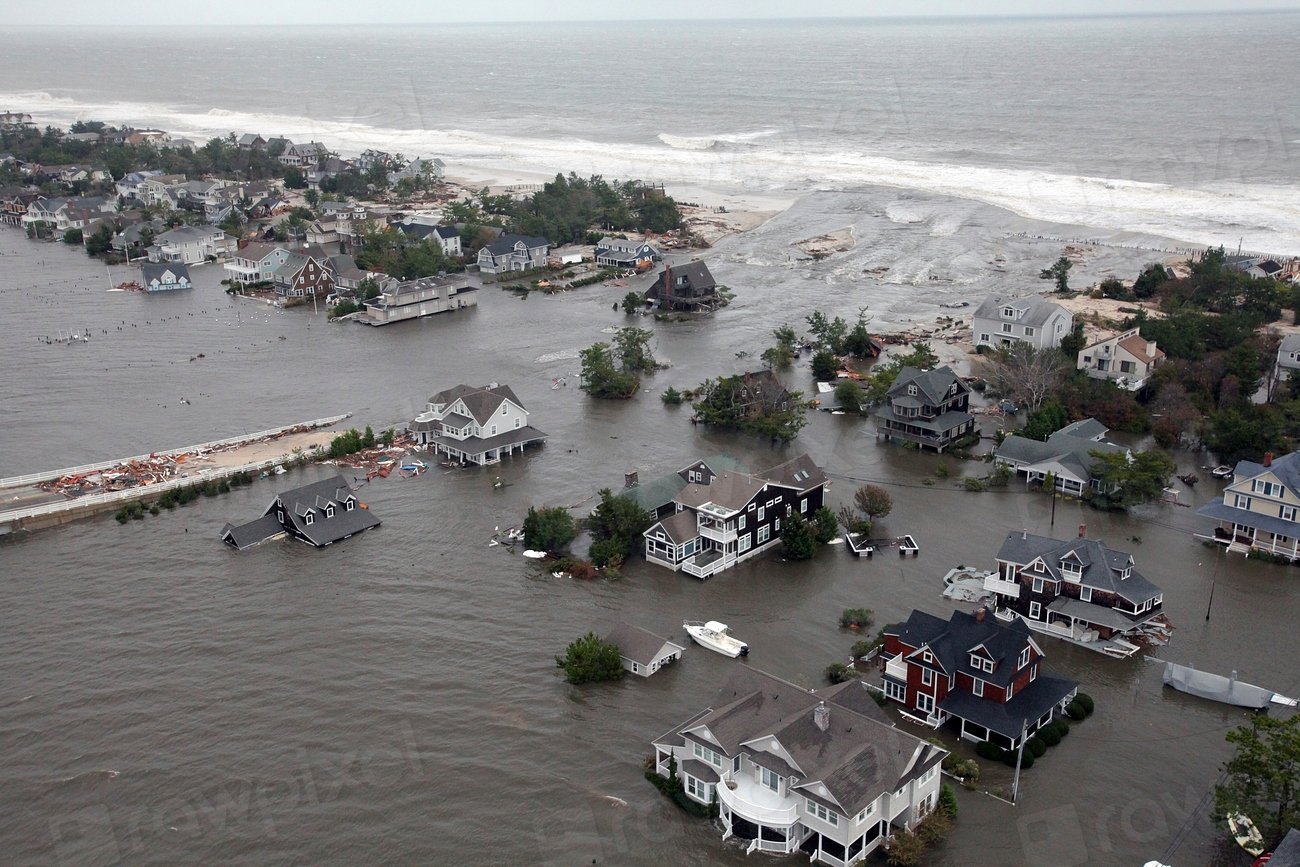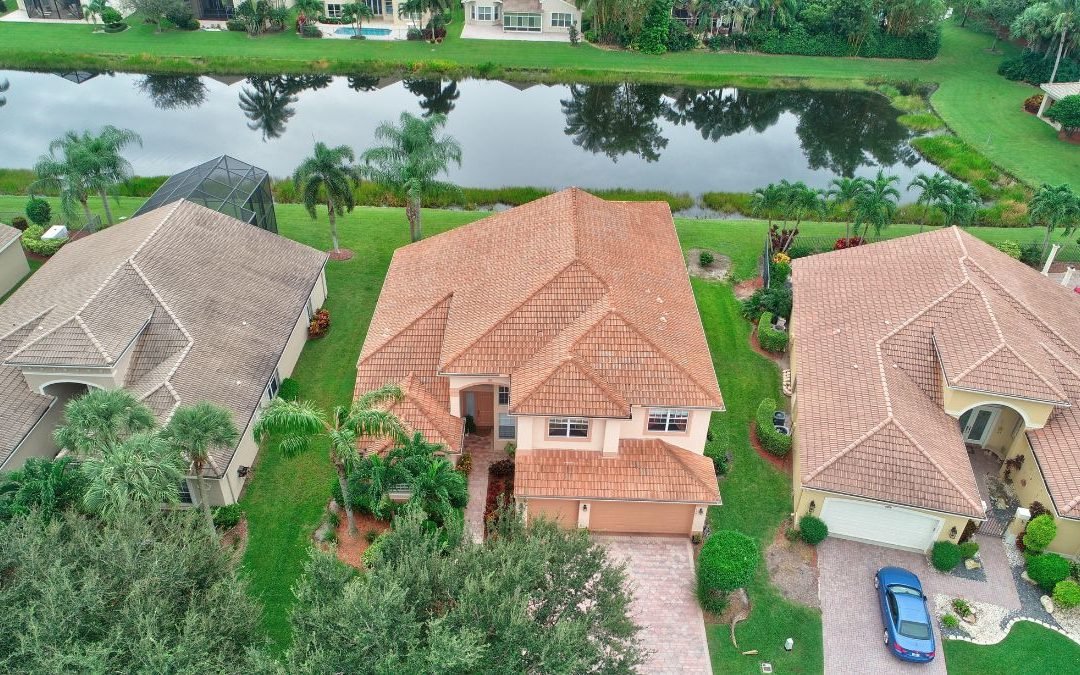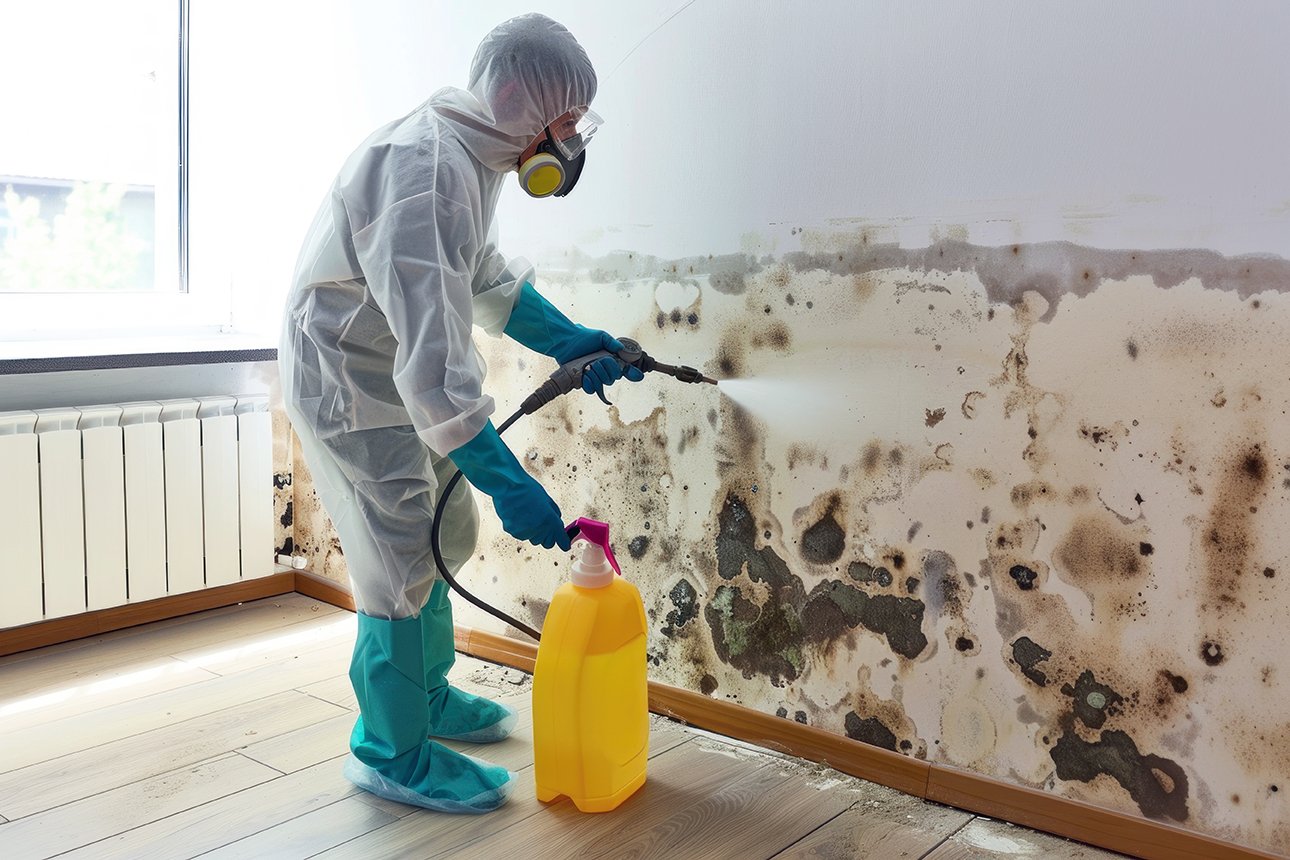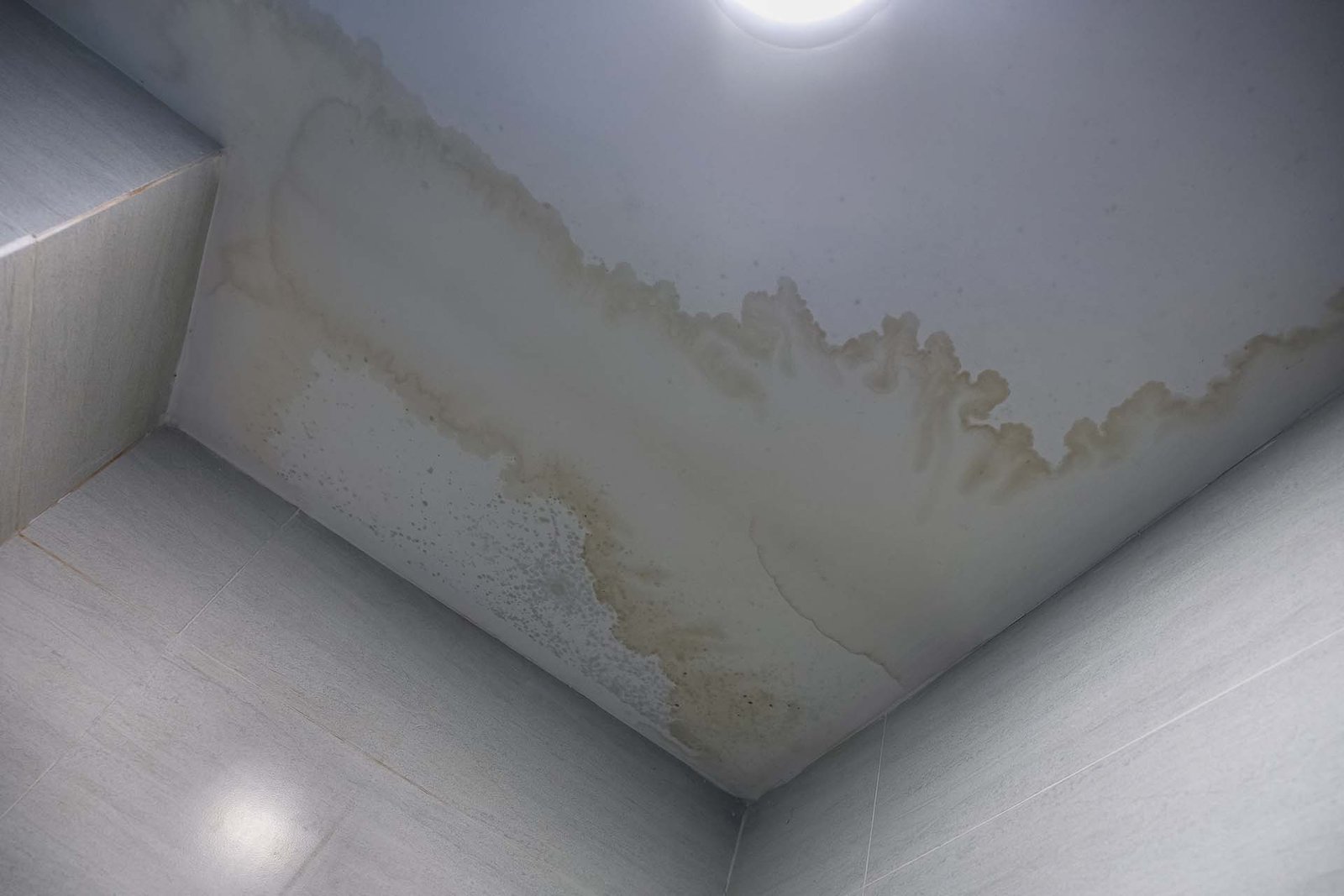Introduction
South Florida’s rental market is booming, with high demand for condos, apartments, and single-family homes in areas like West Palm Beach. However, the region’s humid climate, frequent storms, and aging infrastructure make water damage a constant threat for landlords and property managers. From leaking water heaters to tenant-related floods, water issues can lead to costly repairs, mold growth, and tenant disputes if not addressed quickly. At Edwards Property Remediation, we respond to water damage emergencies 24/7, helping property managers protect their investments. This guide explores the top causes of water damage in South Florida rentals, offers practical prevention tips, and explains how partnering with us can save you time, money, and stress.
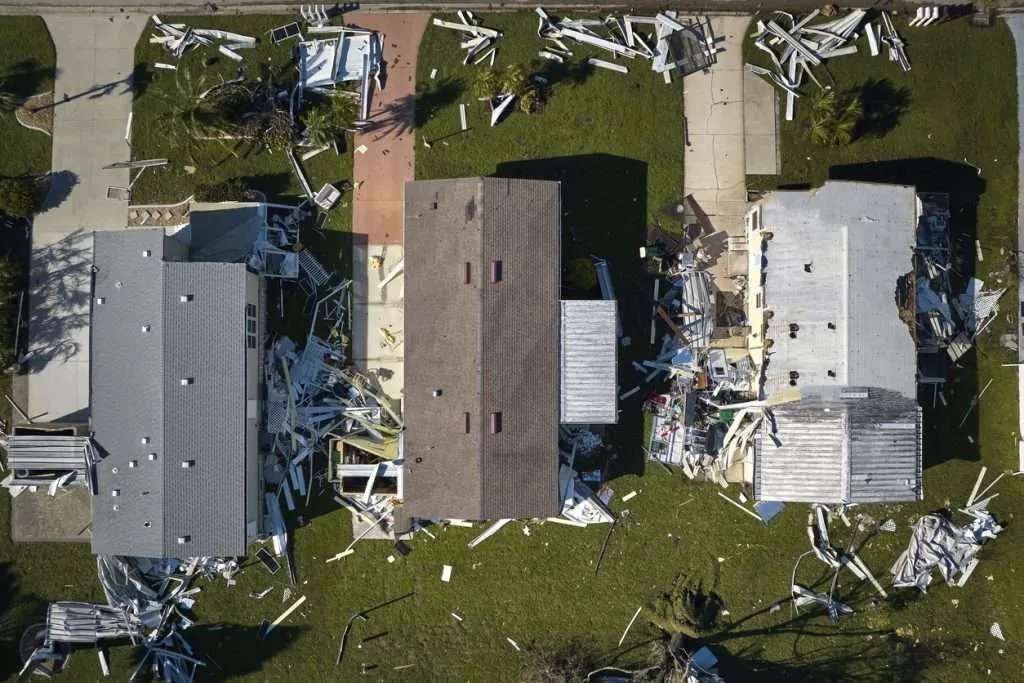
Why Water Damage Is a Major Concern for South Florida Rentals
South Florida’s unique environment amplifies water damage risks:
- High Humidity: Levels often exceed 60%, promoting mold growth within 24–48 hours of water exposure.
- Hurricane Season: June to November brings heavy rains and storms that can overwhelm roofs and drainage systems.
- Aging Infrastructure: Many rental properties, especially in older buildings, have outdated plumbing or HVAC systems prone to failure.
- Tenant Turnover: Frequent move-ins and move-outs can mask slow leaks or maintenance issues.
Left unchecked, water damage can lead to:
- Structural deterioration, requiring expensive repairs.
- Mold infestations, posing health risks and triggering tenant complaints.
- Insurance complications, especially if damage isn’t reported promptly.
- Loss of rental income due to uninhabitable units.
By understanding the top causes of water damage and taking proactive steps, landlords can minimize risks and maintain profitable, safe properties.
Top Causes of Water Damage in South Florida Rentals
1. Leaking Water Heaters
Water heaters are a leading cause of water damage in rental properties. Aging units, poor maintenance, or corrosion can lead to leaks or full tank bursts, releasing hundreds of gallons of water. In multi-unit buildings like condos, a single failure can affect multiple units, causing widespread damage and tenant disruptions.
Impact: A burst water heater can flood floors, damage walls, and lead to mold within 48 hours in Florida’s humid climate. Prevention Tips:
- Replace water heaters over 10 years old to avoid unexpected failures.
- Install a drain pan with a discharge line to catch leaks.
- Schedule annual inspections to check for corrosion or pressure issues.
- Ensure tenants know how to shut off the water supply in emergencies.
Case Example: A West Palm Beach condo complex we serviced had a 12-year-old water heater burst, flooding two units. Our team extracted water and dried the area within 24 hours, preventing mold and saving the property manager thousands in remediation costs.
2. Toilet Supply Line Failures
Toilet supply lines, often made of cheap plastic in older rentals, can crack, loosen, or break, causing leaks that range from slow drips to major floods. In vacant units, these leaks can go unnoticed for days, leading to extensive damage.
Impact: A failed supply line can release gallons of water per hour, damaging floors, walls, and neighboring units. Prevention Tips:
- Upgrade to braided steel supply lines, which are more durable than plastic.
- Inspect fittings during tenant turnovers or annual maintenance checks.
- Install water leak detection devices that alert you to unusual water flow.
- Encourage tenants to report even minor drips immediately.
Case Example: In a West Palm Beach apartment, a loose toilet supply line caused a slow leak that went unnoticed for a week, leading to mold growth under the flooring. Edwards Property Remediation removed the damaged materials, sanitized the area, and supported the landlord’s insurance claim.
3. Clogged or Overflowing AC Drain Lines
South Florida’s constant air conditioning use leads to frequent clogs in condensate drain lines, often due to algae or debris buildup. When these lines overflow, water can seep into walls, ceilings, or floors, causing hidden damage.
Impact: AC overflows are a common cause of water damage in rentals, often leading to mold in hard-to-reach areas like wall cavities. Prevention Tips:
- Flush AC drain lines quarterly with a vinegar solution to prevent algae buildup.
- Install a float switch to shut off the AC unit if the drain line clogs.
- Schedule regular HVAC maintenance to catch issues early.
- Educate tenants to report unusual water near AC units.
Case Example: A Palm Beach County rental had an AC drain line clog that caused water to pool in a ceiling, leading to drywall damage. Our team used infrared cameras to detect the moisture source, dried the area, and replaced the damaged materials within 48 hours.
4. Roof Leaks from Storms
South Florida’s hurricane season and frequent heavy rains put rental properties at risk of roof leaks. Damaged shingles, worn seals, or clogged gutters can allow water to infiltrate, often going unnoticed until it causes interior damage or mold.
Impact: Roof leaks can damage ceilings, walls, and insulation, with repair costs escalating if mold develops. Prevention Tips:
- Schedule annual roof inspections, especially before hurricane season (June–November).
- Check and reseal vents, skylights, and flashing to prevent water entry.
- Clear gutters and downspouts regularly to ensure proper drainage.
- Use hurricane-resistant roofing materials for long-term protection.
Case Example: After a tropical storm, a West Palm Beach rental complex had multiple roof leaks. Edwards Property Remediation provided emergency tarping, extracted water, and worked with the property manager’s insurer to cover repairs.
5. Tenant-Related Floods
Tenants can inadvertently cause water damage through overflowed bathtubs, broken faucets, or failure to report leaks. In absentee-managed properties, these issues often go unnoticed until significant damage occurs.
Impact: Tenant-related floods can damage multiple areas of a rental unit, lead to mold, and strain landlord-tenant relationships. Prevention Tips:
- Provide tenants with a maintenance checklist and clear reporting instructions.
- Offer a 24/7 emergency contact line for water issues (Edwards Property Remediation can be your go-to).
- Conduct regular inspections to catch unreported leaks early.
- Install water shut-off valves that tenants can easily access.
Case Example: A tenant in a West Palm Beach condo overflowed a bathtub, causing water to seep into the unit below. Our team responded within 90 minutes, extracted water, and prevented mold growth, saving the property manager from costly remediation.
The Hidden Danger: Mold Growth
In South Florida, water damage often leads to mold within 24–48 hours due to high humidity and warm temperatures. Mold can:
- Cause health issues like allergies or respiratory problems for tenants.
- Require expensive remediation if it spreads to walls, floors, or HVAC systems.
- Lead to tenant turnover or legal disputes if not addressed promptly.
Prevention Tip: Act immediately after water damage by calling professionals like Edwards Property Remediation. Our team uses industrial dehumidifiers, infrared cameras, and antimicrobial treatments to stop mold before it starts.
Why Partner with Edwards Property Remediation?
Managing water damage in South Florida rentals requires speed, expertise, and a proactive approach. Edwards Property Remediation is the trusted partner for property managers and landlords in West Palm Beach. Here’s why:
- 24/7 Emergency Response: We arrive within 90 minutes to mitigate damage and prevent mold.
- Insurance Expertise: We provide detailed Xactimate estimates, moisture readings, and progress logs to support your insurance claims.
- Comprehensive Services: From water extraction to mold remediation and structural repairs, we handle it all.
- Local Knowledge: Our team understands South Florida’s unique challenges, from hurricanes to aging infrastructure.
- Trusted Reputation: Property managers across Palm Beach County rely on us for fast, reliable service. Check our Facebook page for testimonials.
How to Build a Water Damage Emergency Plan
A proactive emergency plan can save thousands in repair costs and keep your tenants happy. Here’s how to get started:
- Conduct a Risk Assessment: Inspect your property for potential water damage sources, like old water heaters or worn roofing.
- Schedule Regular Maintenance: Check plumbing, HVAC, and roofs at least annually.
- Educate Tenants: Provide clear instructions on reporting water issues and accessing shut-off valves.
- Partner with Professionals: Keep Edwards Property Remediation on speed dial for emergencies.
- Document Everything: Maintain records of maintenance and repairs to support insurance claims.
✅ Free Offer: Schedule a free walkthrough with Edwards Property Remediation. We’ll assess your rental property and help you create a tailored water damage emergency plan. Contact us at (754) 221-6945 or info@eprllc.net.
Case Study: Rapid Response in West Palm Beach
A multi-unit rental property in West Palm Beach faced water damage from a clogged AC drain line. The property manager called Edwards Property Remediation at midnight:
- Within 90 Minutes: Our team arrived, extracted water, and set up industrial air movers.
- Day 1: We used infrared cameras to detect hidden moisture and applied antimicrobial treatments.
- Day 2: We provided a detailed Xactimate estimate to the insurer, ensuring full coverage.
- Day 3: The unit was fully dried, repaired, and mold-free, ready for tenants.
This quick response prevented mold growth and saved the property manager from costly remediation and tenant disputes.
Additional Tips for Landlords and Property Managers
- Upgrade Infrastructure: Invest in durable materials like braided steel supply lines or modern water heaters to reduce risks.
- Monitor Vacant Units: Check empty rentals regularly to catch leaks early.
- Secure Flood Insurance: In flood-prone South Florida, separate flood insurance can protect your investment.
- Leverage Technology: Install smart water leak detectors to alert you instantly to issues.
- Stay Proactive: Regular inspections and tenant communication can prevent small issues from becoming major problems.
Conclusion
Water damage is a top challenge for South Florida rental property managers, but it doesn’t have to derail your business. By understanding common causes like leaking water heaters, toilet supply line failures, AC drain clogs, roof leaks, and tenant-related floods, you can take proactive steps to protect your properties. Partnering with Edwards Property Remediation ensures rapid response, expert restoration, and seamless insurance claim support. Don’t wait for a water emergency to strike—prepare now to save time, money, and stress.
📞 Call (754) 221-6945 for Emergency Help or a Free Walkthrough 📧 Email info@eprllc.net 🌐 Visit www.eprllc.net/property-managers 👉 Follow us on Facebook for tips and updates

